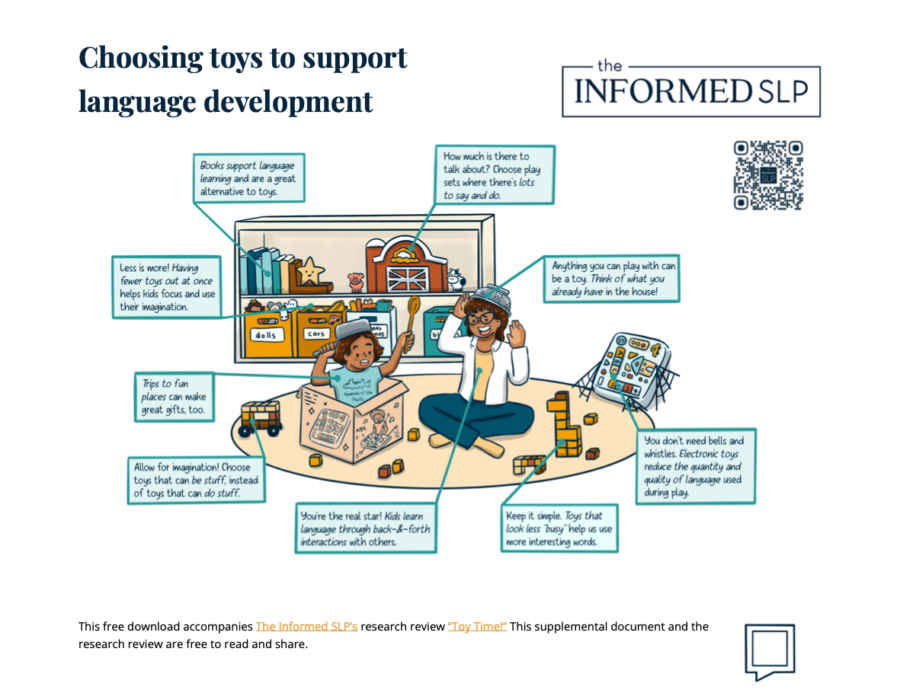Christmas is my favorite time of year, and this year is no exception. My family is already talking about the things we will do during the holiday season. The interesting thing is, my children keep talking about the experiences they have during the season rather than the actual gifts they received on Christmas. They talk about driving around the neighborhood drinking hot chocolate in their pajamas and looking at Christmas lights. They remember making cookies with friends and decorating gingerbread houses with their grandparents.. It got me thinking, why am I spending hours shopping all over town – and the Internet – trying to find the perfect “gifts” for my children and the things they remember aren’t “gifts” at all? I needed to listen to what my children were telling me.
The even more interesting thought is that this concept of less is more is research backed. The Informed SLP reports that “toy marketers go into overdrive to convince parents that their ultra-high-tech beeping flashing Bluetooth-activated contraption will boost children’s development. But there’s actually a good amount of data to back up quite the opposite! Parents of children with developmental delays may be especially susceptible to this type of marketing, so we can play a role in educating parents about how to be smart toy consumers.“
They recommend asking the following questions while toy shopping:
- Do I need a toy? There are many other activities besides toy play that are great for language development! Consider how gross motor activities, daily routines, books, and outings (zoo, library, etc.) offer excellent opportunities for supporting language. Outings and experiences can also make great gifts in lieu of toys!
- What’s already around the house (or the speech room!) that could be used as a toy? Many household objects can serve as excellent toys if you get creative (e.g. salad spinners, cardboard boxes, sock puppets, pots and pans).
- What purpose are you hoping for this toy to fulfill? Is it to keep your child occupied while you make dinner? Is it to encourage problem-solving skills? Is it to support language development? Toys can serve different, valid purposes, and that will affect what you’re looking for.
- What types of things can you say and do while playing with this toy? All toys are not created equal in this regard. Take a moment to consider what you could name and what actions you could do with the toy. The more vocabulary and sentences you can model with the toy, the better it is for language, broadly. Consider these examples:
- Fidget spinner toy (few labels, few actions)
- Animal puzzle (many labels, just a few actions)
- Farm set (many labels, many actions)
- Will this be fun for my child at their current developmental level? That farm set may be amazing for modeling lots of language, but if the child is mainly engaged in cause and effect or combination play, it may be a non-starter. That being said, there often may be ways to play with toys at a variety of different play levels with some creativity. Find examples of how to do this for different toy sets here.
- Will it steal the show? The most important ingredient for language learning is an attuned communication partner who is modeling and expanding on the child’s communication. Make sure that whatever toy you use, the interaction between you and your child is center stage. And the best hack of all? Just don’t put in the batteries!
We hope these questions help your family in this busy time of year. Maybe the large cardboard boxes the toys come in will be just the thing! Thanks to The Informed SLP!
Merry Christmas!
Love, The MTSkids Team
Do you have ideas that you would like featured? Email us at [email protected] to contribute to our community.

Marie Bloem, MA, CCC-SLP
Marie Bloem is Editor for the Birth to Five section of The Informed SLP. She spent five years as a research SLP within the Early Intervention Research Group at Northwestern University where she studied parent-mediated language interventions for children ages 0-3. She is now based in Denver, CO.


Recent Comments